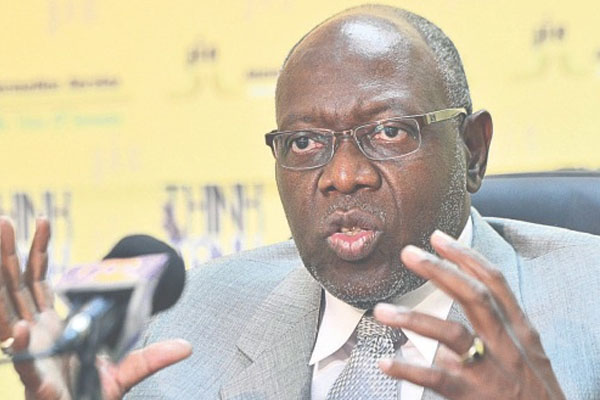Jamaica not in high risk category for Ebola, says health minister
 KINGSTON, Jamaica (JIS)–Minister of Health, Dr Fenton Ferguson, says Jamaica does not, at this time, fall into the category of high risk countries for transmission of the Ebola Virus.
KINGSTON, Jamaica (JIS)–Minister of Health, Dr Fenton Ferguson, says Jamaica does not, at this time, fall into the category of high risk countries for transmission of the Ebola Virus.
At a press briefing, held at the Ministry’s Downtown Kingston offices, on Thursday (August 7), Dr Ferguson informed that the Ministry has been keeping abreast of the developments with respect to the Ebola situation in West Africa, through reports issued by the World Health Organisation (WHO).
“Surveillance at our points of entry is already in place and we will be continuing with training and sensitisation of our health workers, as part of measures to increase our vigilance and preparedness for this disease,” he said.
The Minister pointed out that the capacity of the country’s laboratory will be crucial in the event that the country needs to test for Ebola.
“I would like to assure that we continue to enjoy the support of the University of the West Indies Virology Lab, the United States Centres for Disease and Control and Prevention and the Caribbean Public Health Agency, for testing if needed,” he said.
The Minister noted that Ebola is a very serious illness as evidenced by the rapid spread in West Africa and the over 50 per cent death rate of infected persons, including many health care workers.
Dr Ferguson said the virus is severe and often fatal and is transmitted through direct contact with blood, for example through broken skin, other bodily fluids or secretion, such as stool, saliva, urine and semen of infected persons.
Infection can also occur if broken skin comes in contact with environments that have become contaminated with an Ebola patient’s infectious fluids, such as soiled clothing, bed linen or used needles.
The Minister also cautioned Jamaicans against non essential travel to the affected areas.
Meanwhile, Director of Emergency, Disaster Management and Special Services, Dr Marion Bullock DuCasse, noted that the Ministry will be collaborating with morgue operators as part of the Ministry’s Ebola preparedness and response strategy.
“One of the ways of transmission of the Ebola virus disease into the human population is through the handling of dead wild animals that are infected with this virus and also in the handling of persons who are diseased. We know cultural practices in some countries include the handling of the dead,” Dr DuCasse said.
“So, guidelines had been developed and this was before the rapid transmission of the Ebola virus in West Africa, to ensure that owners and operators of morgues and funeral homes are operating within standardised guidelines, which will ensure that they are protected and also the loved ones who might visit are protected from any diseases that could be transmitted,” she added.
Dr DuCasse said in addition to that, members of the public health teams, particularly the public health inspectors, are being trained to visit these establishments to work alongside them to implement the guidelines.
“This will be further formalised, but for now the guidelines are in place and having reviewed them, in terms of the Ebola virus, they will provide the appropriate protection,” she explained.

